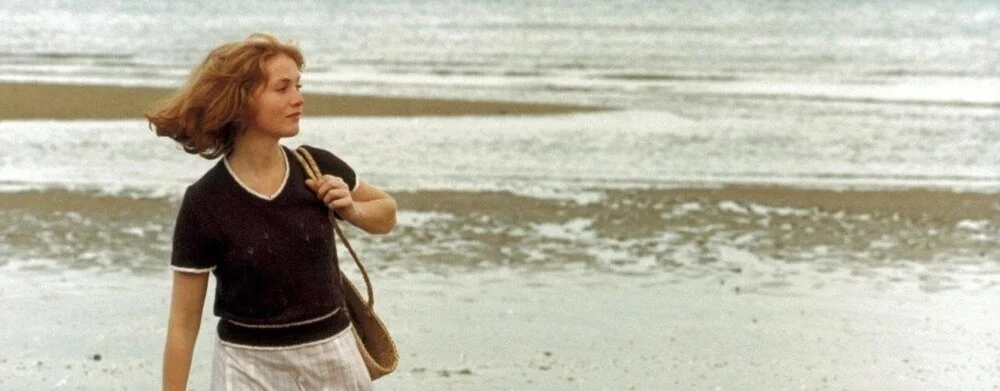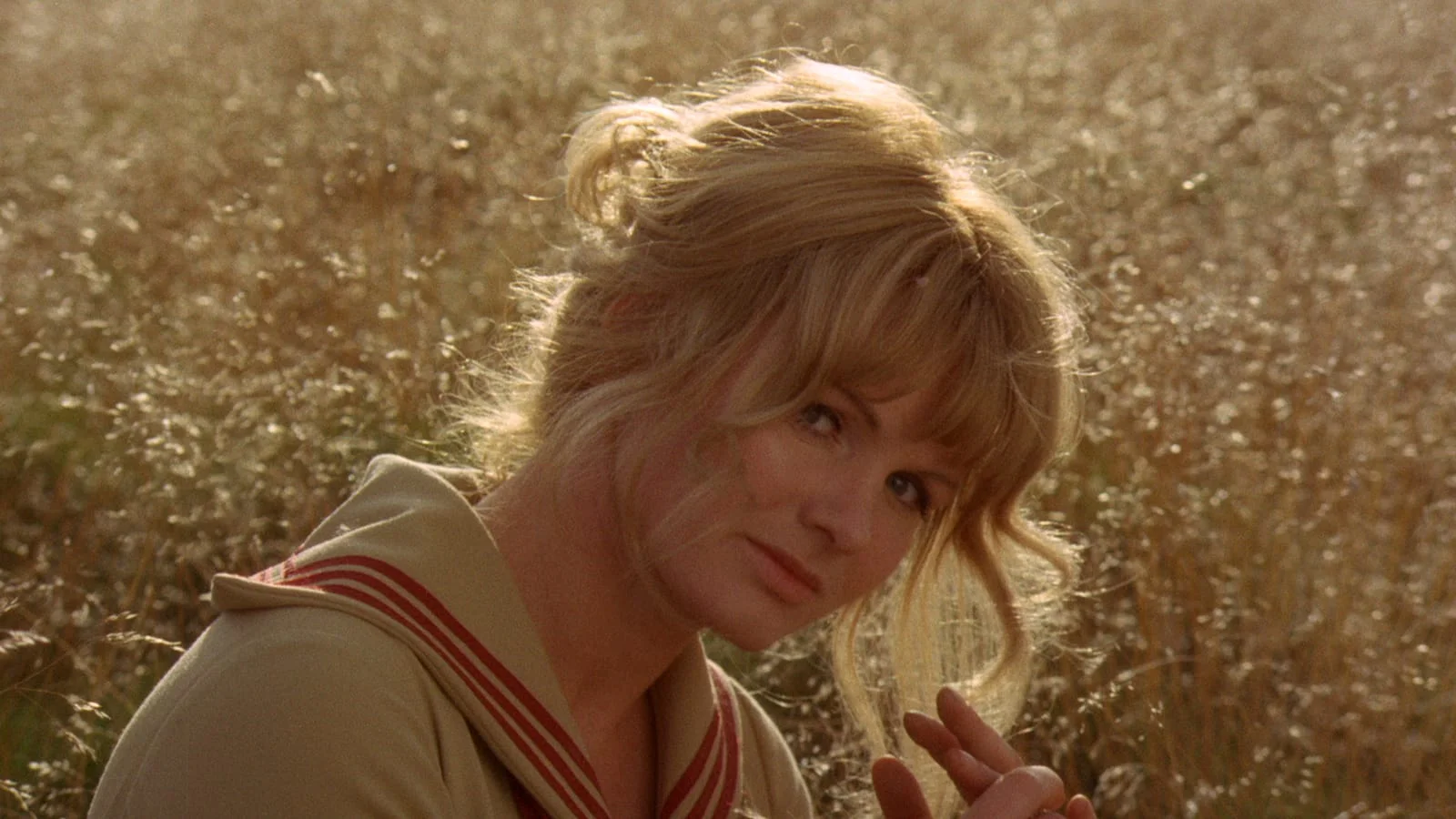2018-19 SEASON
Masters: Ken russell
A true iconoclast among British filmmakers, and never beholden to decorum or conventional standards of good taste, Ken Russell’s films continue to maintain their ability to shock, awe, and delight. His stylistically decadent, often controversial films defiantly question notions of tradition, whether artistic, cultural, or religious, and suggest that civilization is perhaps not so civilized after all.
For our first series, we have chosen five films that reflect several essential touchpoints of Ken Russell’s career. With WOMEN IN LOVE and the famously censored THE DEVILS, we present the films that cemented his artistry and his infamy, respectively. With TOMMY and ALTERED STATES, we present the furthest extents of Russell’s phantasmagoric visions, in the modes of rock opera and sci-fi, respectively. Finally, with MAHLER, we present an under-seen, emblematic example of Russell’s bold, unconventional composer biopics.
Ken Russell returns to his BBC Monitor roots with an impressionistic tale of composer Gustav Mahler’s sad yet joyous life.
Ken Russell makes a “head trip” movie, featuring William Hurt as a scientist investigating the nature of primitive consciousness and reality.
The legendary Ken Russell fashions his most powerful and controversial film, The Devils, detailing sexual hypocrisy and religious strife in 17th century France.
The provocative Ken Russell directs the audacious screen adaptation of D.H. Lawrence’s classic 1920 novel of romantic entanglements in his singular, transgressive style. Featuring an Oscar-winning performance by Glenda Jackson.
FOCUS: World Musicals
With the introduction of sound to the cinematographic lexicon, the Hollywood musical very quickly became one of the preeminent public entertainments of the 1930s. Even now, when one thinks of musicals, one may well be inclined to envision the lavish spectacles of Hollywood or Bollywood. There is a general tendency to overlook the variations on the form, often uniquely characteristic of their national or cultural spheres, that continue to emerge from around the globe. Calgary Cinematheque is pleased to have the opportunity this season to expose audiences to musicals from Hong Kong, Egypt, Iran, Japan, and Indonesia. Musicals are by nature popular entertainment, public art, spectacles meant to be enjoyed by amassed spectators representing a collective body. They are inherently celebratory and communal. Musicals from around the world viewed (and heard) in public space ideally expand our concept and experience of community. Think of these films as locally-global phenomena; experiences grounded in kinship and exultation.
A giddy work of dissident art, No One Knows About Persian Cats follows two recently imprisoned musicians speeding around Tehran on the back of a motorbike, attempting to secure travel documents for a gig in London.
The Happiness of the Katakuris is Japanese provocateur Takashi Miike’s deliciously bizarre song-and-dance remake of the darkly comic Korean film The Quiet Family, telling the story of a family of innkeepers whose guests keep dying and need to be disposed of.
Legendary Egyptian director Youssef Chahine’s Destiny is an opulent large-scale musical spectacle revolving around 12th century Arab Andalusian philosopher Averröes.
Office is Hong Kong director Johnnie To’s gorgeously art-directed and wholly intoxicating star-studded widescreen musical set before, during, and after the 2008 global financial crisis.
SPOTLIGHT: Isabelle Hupert
First appearing on screen in 1971, Isabelle Huppert has amassed more than 130 credits over the course of a remarkable and varied career. Indeed, she is considered by many to be the finest screen actress of her generation, having worked with many of the greatest directors of the postwar era. Whether in her famous extended collaborations with Claude Chabrol and Michael Haneke or in one-off partnerships with a who’s who of contemporary notables, Huppert is famous for her icy intelligence, intensity of affect, and subtlety of craft. Though her consistency is beyond dispute, it would be neglectful in the extreme to pigeonhole this fearless actress; while she can indeed be ruthless and inscrutable as she famously is in films such as Haneke’s The Piano Teacher, she is equally at home conducting amorous combat in Maurice Pialat’s Loulou or participating in the merry madcap antics of Serge Bozon’s Tip Top. Huppert, who has won and/or been nominated for innumerable awards, remains in a class of her own.
Sandrine Bonnaire and Isabelle Huppert become fast friends with deadly results in La cérémonie, master auteur Claude Chabrol’s sinister black comedy inspired by the same true events as Jean Genet’s The Maids.
Isabelle Huppert flexes her comic muscles in Serge Bozon’s Tip Top, a topical madcap screwball detective story set in a suburb of the northern French city of Lille.
One of her earliest star turns, The Lacemaker features Isabelle Huppert playing a reserved young hairstylist who experiences the tragic fall-out from an abortive first love.
In Catherine Breillat’s autobiographical Abuse of Weakness, Isabelle Huppert plays a film director progressively scammed out of a sizeable amount of money by a charming con man, who takes advantage of her after her debilitating stroke.
In The Piano Teacher, Isabelle Huppert gives one of cinema's most fearless performances as a piano instructor at a Viennese conservatory whose repressed fantasy life precipitates a series of increasingly aberrant sexual outbursts.
Isabelle Huppert gives as good as she gets in Loulou, Maurice Pialat’s film of love as battleground.
Contemporary World Cinema
One-time opportunities to find rising masters and see critically acclaimed, under-exposed world cinema.
A profound and emotionally resonant film telling the intersecting stories of four characters in the north-east of China, An Elephant Sitting Still is both the debut and, tragically, the final feature film by filmmaker and novelist Hu Bo, who tragically passed away at the age of twenty-nine during postproduction on the film.
A highly episodic experiment set in Russian-occupied eastern Ukraine, Donbass is the latest narrative feature from the controversial Sergei Loznitsa, the Ukraine’s preeminent contemporary filmmaker.
Made in the mode of his ephocal series Histoire(s) du cinéma, combining fervidly intercut archival footage and a bracing deluge of oracular commentary, The Image Book finds Jean-Luc Godard making peerless art at the apex of a peerless career.
Winner of the FIPRESCI prize at the 2018 Cannes Film Festival, Burning is a loose adaption of the 1983 Haruki Murakami story “Barn Burning.” Informed by what director Lee Chang-dong has described as his growing concern with “the rage of young people,” the film presents a simmering love triangle and pyromaniacal acting out within the context of a corroding social fabric.
Mohammad Rasoulof’s Cannes-winning A Man of Integrity is a powerful film that smartly shows how corruption can take hold in society aided by men who lurk in the shadows and pull the strings.
Special Screenings: Christmas Interlude and season Finale
We're heading back to 1967 for our final screening of the season! In The Young Girls of Rochefort, twin sisters Delphine (Catherine Deneuve) and Solange (Françoise Dorléac) both look for love when a fair comes to their sleepy port town. Join us for this charming French film that pays homage to Golden Age Hollywood musicals.
State of the world getting you down? Friend, it could be so much worse. Come spend pre-Christmas Christmas with Calgary Cinematheque, FOUR Marx Brothers, Leo “Golden Boy” McCarey, and a little movie called Duck Soup.























The ultimate rock opera, Ken Russell’s Tommy blew up the box office with its tale of a deaf, dumb, and blind pinball kid who becomes a cultural and religious messiah.